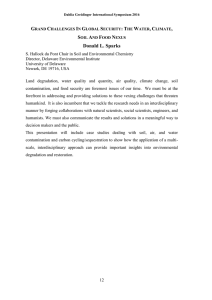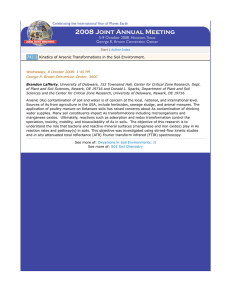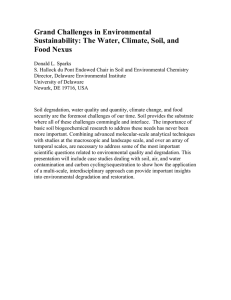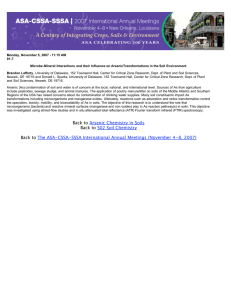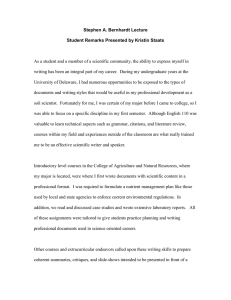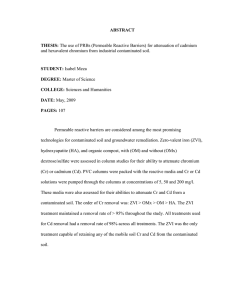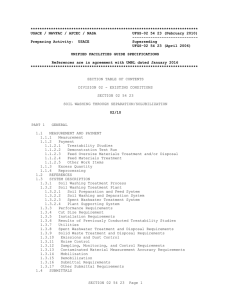GEOC: Division of Geochemistry
advertisement
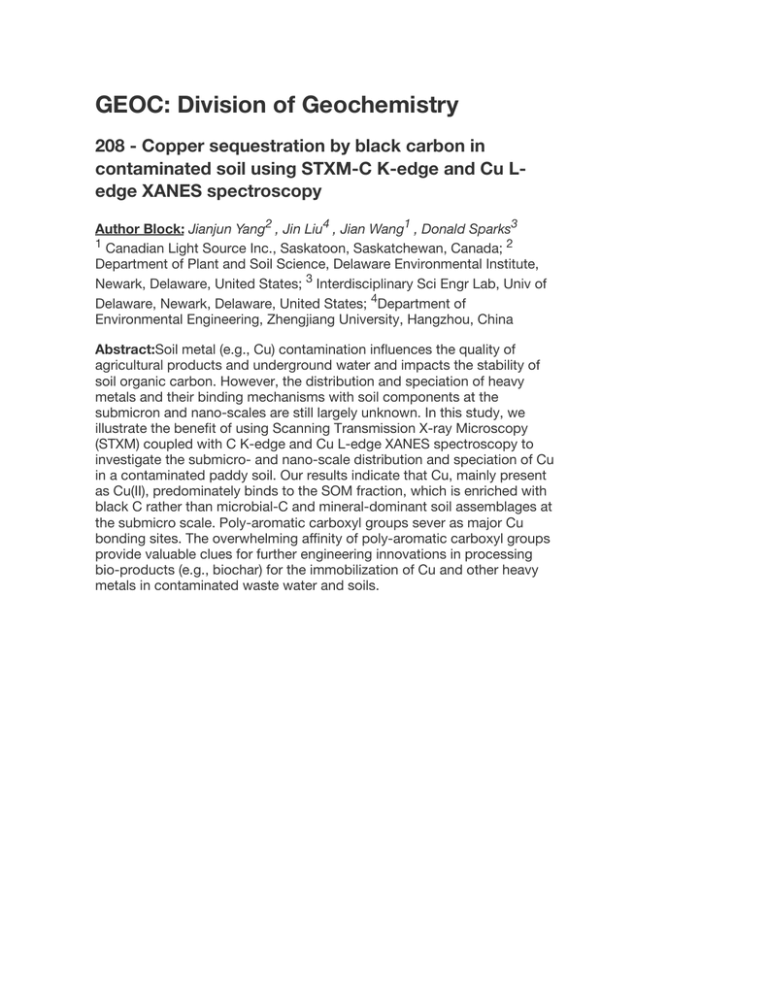
GEOC: Division of Geochemistry 208 - Copper sequestration by black carbon in contaminated soil using STXM-C K-edge and Cu Ledge XANES spectroscopy Author Block: Jianjun Yang2 , Jin Liu4 , Jian Wang1 , Donald Sparks3 1 Canadian Light Source Inc., Saskatoon, Saskatchewan, Canada; 2 Department of Plant and Soil Science, Delaware Environmental Institute, Newark, Delaware, United States; 3 Interdisciplinary Sci Engr Lab, Univ of Delaware, Newark, Delaware, United States; 4Department of Environmental Engineering, Zhengjiang University, Hangzhou, China Abstract:Soil metal (e.g., Cu) contamination influences the quality of agricultural products and underground water and impacts the stability of soil organic carbon. However, the distribution and speciation of heavy metals and their binding mechanisms with soil components at the submicron and nano-scales are still largely unknown. In this study, we illustrate the benefit of using Scanning Transmission X-ray Microscopy (STXM) coupled with C K-edge and Cu L-edge XANES spectroscopy to investigate the submicro- and nano-scale distribution and speciation of Cu in a contaminated paddy soil. Our results indicate that Cu, mainly present as Cu(II), predominately binds to the SOM fraction, which is enriched with black C rather than microbial-C and mineral-dominant soil assemblages at the submicro scale. Poly-aromatic carboxyl groups sever as major Cu bonding sites. The overwhelming affinity of poly-aromatic carboxyl groups provide valuable clues for further engineering innovations in processing bio-products (e.g., biochar) for the immobilization of Cu and other heavy metals in contaminated waste water and soils.
